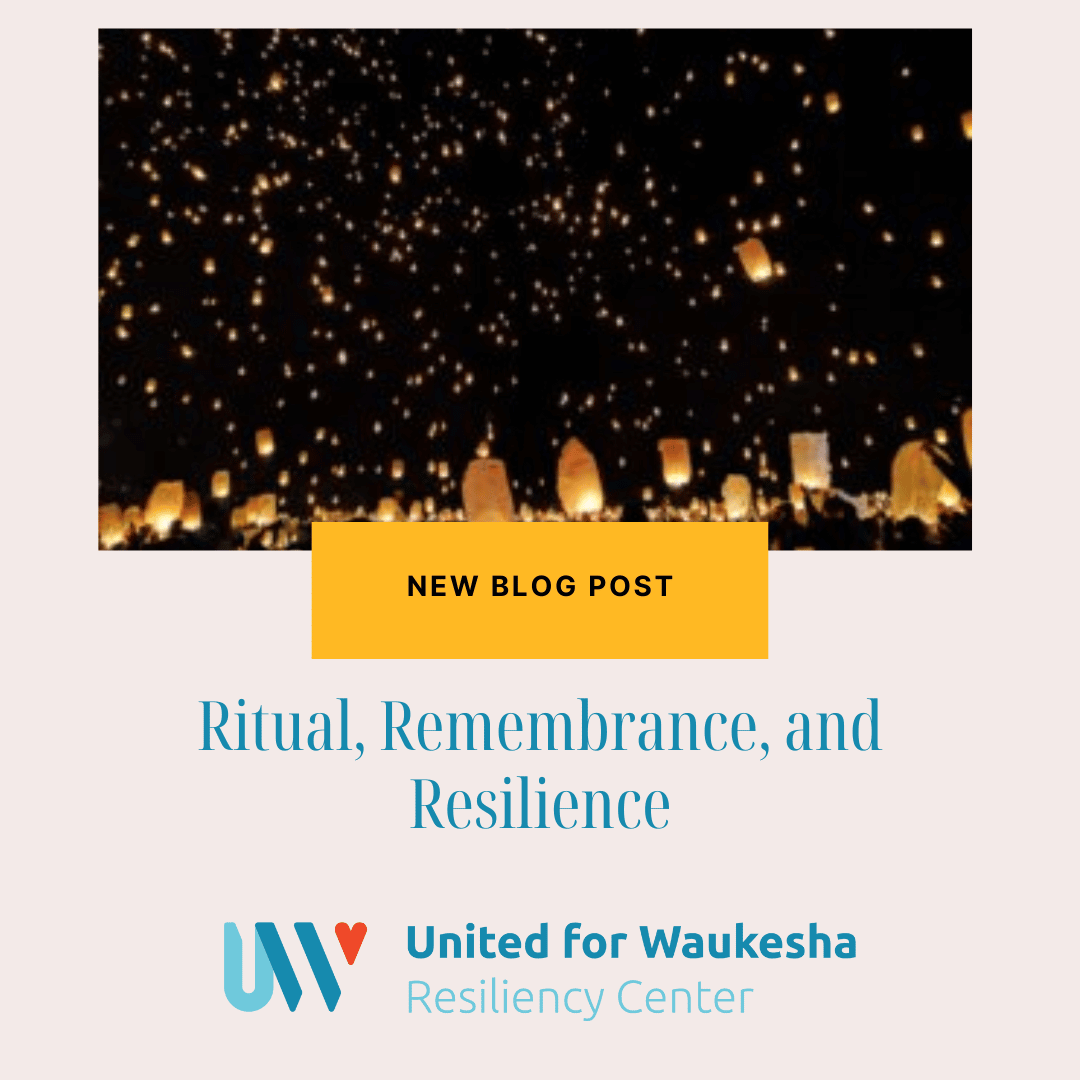November 21 will mark two years since the Christmas Parade tragedy that changed our community forever, creating ripple effects still felt by many today. For some, the events of 2021 feel far away, like another lifetime. For others, it may feel like only yesterday.
Grief and trauma can feel isolating. You may remember the event, the painful feelings associated with those memories, and you may look around and wonder, Is no one else thinking about this? Does no one else care? Grief and trauma can also make us feel powerless: What could I possibly do to feel better or make meaning out of such a senseless act? The anniversary of a traumatic event and the associations that come with it can bring unwelcome reminders and emotional pain that can seem overwhelming.
Research shows that rituals, even made-up ones, can help us honor and process grief and trauma. Rituals allow us to make sense of the senseless, externalize pain, and regain a small feeling of control over the uncontrollable. A study found that rituals had this positive effect even for people who did not “believe” in the power of the ritual, meaning you don’t have to be religious or superstitious to experience a benefit!
Some rituals around loss are common to our culture, like laying flowers on a grave or toasting the absence of a loved one. Rituals to recognize trauma or other adversity are rarer and require us to get creative. First responders and medical staff who served on 11/21/21 memorialized their service and resilience with tattoos at our Healing Ink event in September.
If this is a hard time of year for you, what is something you can do for yourself to honor and ritualize this anniversary? Here are some ideas to consider, or come up with your own that is unique to you:
- Write a difficult feeling or memory on a piece of paper, then burn it or fold it into a piece of origami so that it is contained.
- Find a song that describes how you feel and play it when you experience a hard moment – music can be cathartic.
- Create a small sculpture out of Play-Doh that represents a painful emotion or memory, then squash it.
- Light a luminary with UWRC at your home or at the memorial ceremony on 11/21.
Reactions to an anniversary like this can be varied. If you are concerned that you may be experiencing symptoms of depression or PTSD, check this resource or call a UWRC Service Navigator at 262-522-0243 to discuss your needs. The United for Waukesha Resiliency Center is here to help you at any stage of your healing journey. If you are experiencing suicidal thoughts, call 988.

